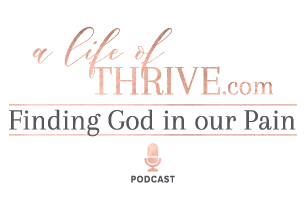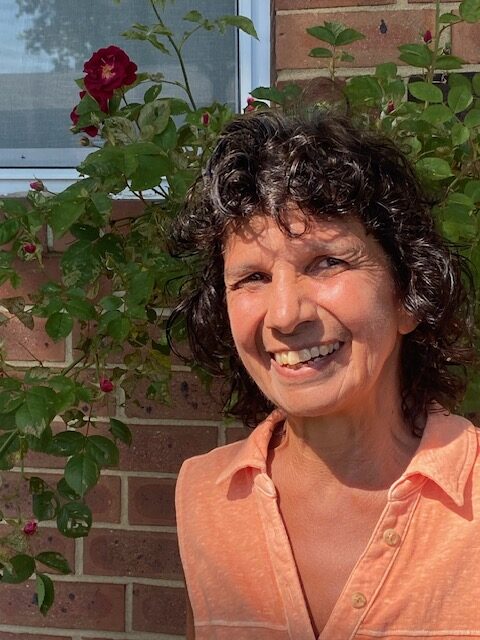 “The second is like it, ‘You must love your neighbor as you love yourself.”—Matthew 22:39 (NLV)
“The second is like it, ‘You must love your neighbor as you love yourself.”—Matthew 22:39 (NLV)
I hear/read Bible verses all the time. I’m in awe that God’s word is multi-faceted, living, breathing, and always current. Over the years I’ve discovered that, while Scripture can be literal and figurative, it also speaks of the spirit realm and our physical reality. Scripture never fails to reveal something new (to me) about the power, purpose, and love of God.
I can read the same Scripture multiple times and find it speaks to me in a new way, depending on the stage of life I’m in. The Holy Spirit constantly unveils new meaning and application. The Word never gets old. Depending on what I’m personally walking through in my life, a verse I’ve heard many times shines a new light on a deeper meaning. As I’m exposed to the Word, I never fail to learn something new about who God is and His heart for me.
I remember when Matthew 22:38 really caught my attention. It’s not as though I hadn’t heard the verse many times before, but, on this occasion, I took time to consider the commandment. My initial response to “love your neighbor as yourself,” was, if I love my neighbor like I love myself, I don’t think this is going to be good for either one of us.
I pressed on. After all, it’s the second greatest commandment in the Bible (the first great commandment is found in Matthew 39:37-38). If God says this second admonition is important enough to follow His first great commandment, then surely it warranted a much deeper consideration.
The fact it was a commandment versus a request was compelling enough, but the real drive behind my digging into this verse was because I was at a place in my life where I was trying to learn how to turn survival skills into relationship skills. Ultimately, if I learned what He meant by this commandment, I would be able to love my neighbor and, in turn, I would learn what it meant to love myself.
First and foremost, I struggled to understand exactly what love was supposed to look like. After getting kicked out of my childhood home at 18 and facing the real world of adult responsibilities, I realized that my skill set was not serving me well outside the four walls of my family home.
Trusting God to define love was a new experience for me. I found it difficult to let go of my firsthand examples of love—that which was tangible and experiential versus what I was reading on crinkly pages.
The pain of not getting the results I wanted or expected made me reconsider my self-erected wall. I hungered for love, and I yearned to know exactly what the real deal looked and felt like. I gravitated to Scripture that spoke to me about a Father in heaven who created me for relationship with Him and embodied an authentic love with no strings attached.
Scriptures such as:
I have loved you with an everlasting love.
I have drawn you with unfailing kindness.
I know the number of hairs on your head.
I do not remember you according to your sin but rather I remember you according to My great love for you.
I was bought at a price.
When I was still a sinner, Christ died for me.
Because of His great love, God is rich in mercy.
Absolutely nothing can separate Him from me.
Give Him all my fear and pain because He cares for me.
For God so loved.
He gave.
Jesus wept.
He dances and sings over me …
… these scriptures and many more are written on the inside cover of my Bible. They’re fading now, but those truths were how I began to override the lies by which I had defined my life. Even now I use them when the challenges of real life threaten to steal my truth.
God wasn’t asking me to love my neighbor—He was commanding me to love them, yet I didn’t have a full grasp on how to love myself. Or what healthy love looked like.
We can care for our physical needs and still be a hot mess on the inside. Beautiful on the outside but an emotional tyrant to ourselves on the inside. To love oneself needs to be the whole package from internal dialog to presenting our physical appearance as the temple where God’s spirit dwells. Was this even possible? If it was, love would have to look a lot different than the way I had learned to define it.
We will never know how to love others until we experience the Origin of love. God’s love for me changed everything. It changed my past as well as my future. It changed the way I value myself and those around me. Life has a deeper purpose, value, and new meaning. People can be who they are and I’m not offended, angry, or threatened. Corny, I know, but it’s true. Truth stripped down, bare naked, unencumbered by how the world might prefer, I credit my life-changing revelations.
God’s love for me defines my intrinsic value and that of my neighbors. To love myself is to believe I have intrinsic value and that God loves me unconditionally. Loving myself means I care for my physical needs as well as my emotional needs. It means I care for myself with food, clothing, good health practices, etc. I care for my emotional needs by showing myself grace, mercy, and patience. This, too, is how I must love my neighbor.
NOW LIVE LOVED and THRIVE!
Self-Reflection
These questions are in no way a substitute for healthcare professionals or any level of professional counseling. I’m an advocate for taking care of oneself mentally, physically, emotionally, and spiritually. These questions reflect my heart, NOT my profession.
This questionnaire is an opportunity to journal your thoughts and feelings. It can serve as a launching pad on which to evaluate your heart condition as you understand it. My hope is that you will take the truths you discover about yourself and hold them up to the Light to evaluate them against who God says you are.
- Would you say you love yourself by the way you take care of your physical body?
- Based on your self-talk, would you say you love yourself?
- Name one thing that can be an act of love for you with regard to the way you treat your physical body.
- With regard to loving yourself on an emotional level, name one thing you’d be willing to add or take away from the way you speak to yourself.
- Do you believe God is the origin of love? Explain.
- What is the difference between a commandment and a request?
- Is it easy to love others? All others, or just some others?
Take Action
Use God’s word to take control over the traumas in your life. Whenever you feel terrorized by your thoughts take them captive by replacing them with the truth of God’s promises in His word.
Here is a scripture for you to print, cut and carry with you and/or post in places where you will see it often. Ground yourself in God’s truths not Satan’s attacks. Encourage your heart and mind every time you are reminded of His great love for YOU!
Here is what God’s word says about His unfailing, relentless, unending love for you:
“The second is like it, ‘You must love your neighbor as you love yourself.”—Matthew 22:39 (NLV)
When you read God’s word say to yourself: God commands us to love our neighbor because if we are left to our own desires we would not seek to genuinely love our neighbors especially not the ones who treat us unfairly or cruel. It’s easy to love those who are likable but that’s not the type of God’s talking about. The language of God’s heart is always love, for everyone. No exceptions.







